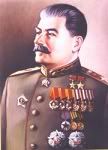Pochinco
| |||
| Motto: So does the Motherland, thus the World. | |||
| Anthem: Pochinco First! | |||
| Official Languages | Slovikian, English , Latin | ||
| Capital | Slovinastagrad | ||
| Region | Golden Shanty of Saint Bens | ||
| Head of State and Government | Spiritual Leader of the Nation: Voula Setsinti Chairman of the Republic: Boris Pochinco | ||
| Area - Total - water |
22,402,200km² 52,643 km² | ||
| Population - Total (september 2007) - Density |
1.884 billion 80.8/km² | ||
| Foundation of the Republic | July 20 1944 | ||
| Government Type | Socialist Republic | ||
| National Animal | Iron Panda | ||
| GDP (2005) - Total - GDP/capita |
98 trillion vergens $54.38 | ||
| Currency | 1 Vergen ($) = 100 eurocents | ||
| Time Zone - in summer |
GMT +1 GMT +1 | ||
| International Abbreviations - sport - government |
PCO PCHO | ||
| Naval Craft Classification | PSN (Pochincan Socialist Navy), PCH(Civilian) | ||
| GDH (2006) | 0.964 (very high) | ||
| Internet TLD | .pch | ||
| Calling Code | +428 | ||
Pochinco
The Democratic People's Republic of Pochinco is a massive, environmentally stunning nation, remarkable for its strong anti-business politics, its military might and its sturdy support of social welfare. It is amongst the most powerful nations located in the Golden Shanty of Saint Bens possessing in itself a large military and a strong manufacturing capacity. It consists of the mainland part of the nation, centered around the capital, and a small island off to the southwest, Forsicia.
History
What is Pochinco today would be almost unrecognizable in its medieval form. It evolved from a tiny backwards and primitive state known as Brotistika. Morotistika was ruled by the princely family of the Dorsinovs who had settled into the region in about the 12th Century AD.
Dorsinov rule continued until around circa 1506 when the native Slovinian population rose up against their rule. For the most part the revolution was bloodless (compared to the revolution that would be seen almost 500 years later) and the transition was quickly made to a native Slovinian monarch.
It was also during this time that the Slovinian peoples love of bear wrestling, which would quickly become the official sport of the kingdom and later the people's republic. During this time Prof. Ivan Von Stronsburg Eich Winchalguer-Isgorsanov using his mastery of clockwork created an army of Iron Bears which became the national animal of the nation.
Peasant life in feudal Brotistika was most difficult. The land was impossible to farm and the many rock formations, most notably Mt. Duresky, showed almost no mineral deposits to be mined. However, despite all these hardships, the noble people of the nation were able to get along quite well.
Grand Socialist Revolution
In the spring of 1940 a young woman, tired of seeing the peasants brought down to shame and disgrace attacked the City Hall of her village and attempted to assassinate its mayor. This woman was Greta Slovak, a lowly school librarian of Alfredistani descent. Although she was easily arrested and labeled insane by the local police force and courts, her message truly got through to peasants of the village of Bratislavistik. Feeling compelled to help this poor woman, the peasants rallied behind a corporal of the army, Mikhail Pochinco.

|
| Mikhail Pochinco |
This call to rise up against their oppressors was reverberated throughout the country, and within a few days, uprisings were floorishing throughout the nation under the leadership of Mikhail Pochinco. However, he claimed to be an instrument in "the noble crusade that was started by our shining beam of revolutionary light, Greta Slovak".
Government and Politics
While the DPRP is regarded as a Communist state by many political scientists, simple characterizations of Pochinco's political structure since the 1980s are no longer possible. The DPRP government has been variously described as authoritarian, communist, and socialist, with heavy restrictions remaining in many areas, most notably in the Internet and in the press, freedom of assembly, freedom of reproductive rights, and freedom of religion. However, compared to its closed door policies until the mid-1970s, the liberalization of the DPRP is such that the administrative climate is much less restrictive than before, though the DPRP is still far from the full-fledged democracy as practiced in most of the Golden Shanty of St. Bens, according to most observers internationally.
The country is ruled under the Constitution of the People's Republic of Pochinco. Its incumbent Spirtual Leader is Voula Setsinti and its Chairman is Boris Pochinco
The country is run by the People's Social Revolutionary Party (PSRP), who is guaranteed power by the Constitution. There are other political parties in the DPRP, referred to in Pochinco as "democratic parties", which participate in the People's Political Consultative Conference and the National People's Congress. There have been some moves toward political liberalization, in that open contested elections are now held at the village and town levels, and that legislatures have shown some assertiveness from time to time. However, the Party retains effective control over governmental appointments: in the absence of meaningful opposition, the PSRP wins by default most of the time. Political concerns in Pochinco include lessening the growing gap between rich and poor and fighting corruption within the government leadership.


